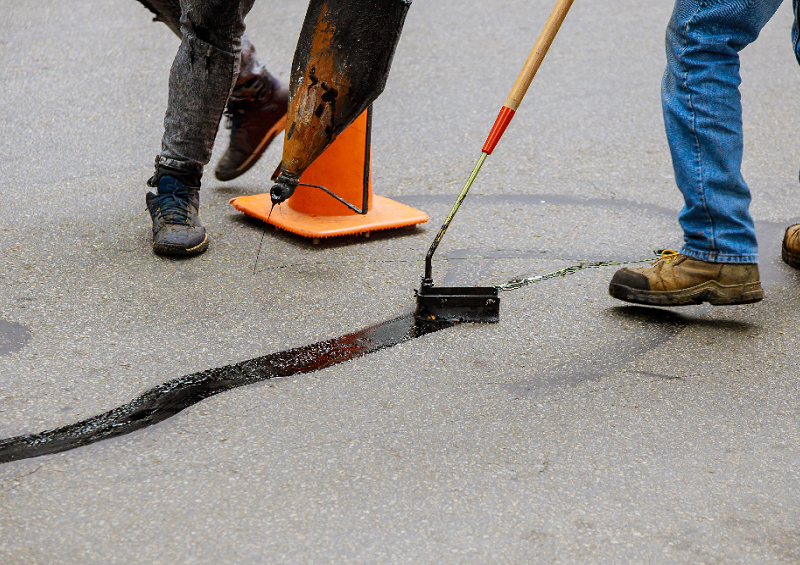When it comes to asphalt and concrete driveways, there is often confusion about whether they need to be seal coated or not and if so whether you can use any type of sealcoat on either surface. The first thing to discuss is what seal coat is and when it might be needed.
What is Seal Coat?
Seal coat is a layer of defense used to protect driveways and other hard surfaces such as parking lots and roads. It is designed to cover cracks and prevent water from penetrating the surface below, which would otherwise make it brittle and unsafe. For driveways, seal coating also has the added benefit of stopping weeds from growing through the gaps. Furthermore, sealing a driveway will protect it from UV rays, thus preventing discoloration and fading.
Does Concrete Need to be Seal Coated?
There is much debate about whether concrete needs to be seal coated. There are some who say that it does not, but others insist that even though it is not absolutely necessary, there are many benefits to doing so.
Concrete is a porous material and so absorbs water. If you live in a climate prone to freezing temperatures, the constant freeze/thaw cycle can result in damage to the concrete. When liquid freezes, it expands, which can damage the concrete and cause cracks. A good-quality seal coat can prevent this from happening. When a concrete driveway or parking lot is seal coated, water will bead on the surface before draining away. This prolongs the life of the concrete.
According to the experts at Parking Lot Pros, seal coating is a terrific way to aid concrete maintenance.Furthermore, if non-slip additives are included in the seal coat, it will improve safety on driveways and parking lots, particularly in winter.
Something to mention here is that while concrete patios, driveways, parking lots, and roads can benefit from seal coating, it is not common to seal coat concrete foundations and walls.
What Type of Seal Coat Should You Use?
There are several types of seal coats used for concrete. The one used is typically determined by the type of surface to be sealed,and to a lesser extent, personal preference.
Acrylic resin-based seal coat forms a thin protective film on top of a concrete surface, forming a resistant barrier to moisture and mildew. It is stain- and UV-resistant, although it is important to ensure a high-quality product. Lower quality acrylic resins can turn yellow in the sunshine.
Penetrating sealers do as you might expect – they penetrate the concrete, preventing contaminants such as oil, water, and chemicals from causing damage. They typically contain materials such as silanes, silicones, and siloxanes. One of the main differences between acrylic resin and penetrating sealers is the lack of a film with penetrating sealers. This means there is no shine or gloss on the surface of the concrete.
A polyurethane sealer is another option but is typically more expensive than an acrylic resin sealer. It involves a thicker layer being applied to the concrete surface. Critics of this type of sealer do not like the fact that it can cause the surface to become slippery.Moreover, because the concrete is not allowed to breathe under the thick layer, it can lead to a white, mist-like appearance under the sealer.
Conclusion
Although concrete does not necessarily need to be seal coated, doing so can prolong its life by preventing substances such as oil, water, and chemicals from penetrating and causing damage. There are a few different types of sealant for concrete, with personal preference and the surface to be sealed determining which one is used.











